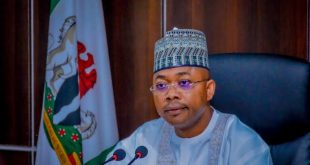LATELY, there have been growing concerns over the seemingly intractable problem of access to tertiary education in Nigeria. Less than 30 per cent of candidates who apply for admission every year are absorbed by the existing institutions of higher learning.
Majority of these candidates opt for university admissions, for reasons that are still subject to debate; but even the combined capacity of all the existing 152 universities (federal, state and private) is still grossly inadequate.
Experts have called for increased private sector participation in university education, saying this will solve the problem of access.
The coming on stream of private universities has, indeed, made a difference, but not quite sufficiently effective enough to provide spaces for the teeming candidates that are seeking admission every year.
Going by the records emanating from the Joint Admissions and Matriculation Board (JAMB) every year, private universities are indeed helping in providing access, but their intervention still amounts to scratching the problem on the surface.
To date, less than five of the existing private universities in Nigeria receive anything close to 5000 applications for admission through JAMB (many receive less than 20); and there is practically no public university today in Nigeria that has a total students’ population of up to 40,000 – not even the most subscribed federal university, the University of Ilorin.
So, there is, every year, an ever-increasing pool of qualified by frustrated candidates seeking university admission.
But more worrisome still is the problem of quality. Talks abound of Nigerian university graduates being unemployable. Employers of labour have been complaining that many graduates turned out today are increasingly finding it difficult to fit into the roles and functions required of them.
This does not come as a surprise to many these days. Lecturers have complained and protested endlessly over lack of necessary facilities and equipment required for effective teaching and learning.
As a former president of the Academic Staff Union of Universities, Dipo Fashina, once put it, students are today being taught “theories of practical,” rather than having hands-on experiential knowledge on their fields.
There is acute underfunding of the system, leading to low morale and, expectedly, upsetting academic continuum. This happens fairly so regularly that some believe it has become a Nigerian academic tradition.
These frequent interruptions in the academic calendar ultimately affect the quality and rating of Nigeria’s university degree certificates, both in the workplace and outside the shores of the country.
So, how can Nigeria solve the twin problems of access and quality?
The Head of Department of Mass Communications, University of Benin, Dr Uchenunu Ambrose, says more funding is required for public universities, if they will attain their goals.
He lamented: “There will always be a falling standard, if the universities are not properly funded. The effect (of inadequate funding) is half-baked graduates. I am in the Mass Communications Department, and you really can’t imagine what we go through on daily basis.
“There are no equipment and necessary facilities to complement the theoretical aspect of it. You can’t even see projectors to use in showing them what you are talking about. As simple as projectors are, you can’t find them, before we start talking about cameras for pictures and video recordings to practicalize what they are being taught.”
“You teach students without any tools for them to practise and even experiment. And the cost is much for them to go outside the university to hire cameras or any other things needed. So, what we do is to tell them to experiment with their mobile phones.
“Schools are not well funded; and because there is poverty in the land, you cannot impose heavy school fees on them.
While calling on the government to properly fund the institutions, as universities are capital-intensive, Ambrose said the institutions themselves should be able to generate revenue aggressively to augment what government gives them.
Speaking with the Tribune Education, the president of the Academic Staff Union of Universities (ASUU), Professor Biodun Ogunyemi, said government has fund public universities appropriately.
He also said that the only effective solution to the problem of access is to expand the existing public universities.
Reacting to recently announced plan by government to establish more universities, Ogunyemi said it would not solve the problem of access.
Describing the universities established in the twilight of the previous administration as “glorified secondary schools, he said: “When the facilities have been expanded, more students can be admitted. There are universities in Egypt and South Africa that have close to 300,000 students. Here, the largest universities should be less than 50,000 students.
“There is no new university that can take up to 10,000 students; it will take some time to get to that stage. But if we expand and fund the existing ones appropriately, then more students can be taken.
“ASUU’s position is clear: we need to improve on the existing (universities), expand spaces, and increase their staff strength, so that they can take more students.”
Also, the chairman of ASUU, University of Lagos chapter, Mr Adelaja Adekoya, said education is a public good that government must support.
He said, “Globally, government supports universities in one form or the other; hence UNESCO’s position that 26 per cent of national budget should go to education. Education is a public good.”
Adekoya also opposed plans by government to establish more universities, saying “any decision to establish more universities by government when those existing are glorified secondary schools is reckless and portends danger for education and national development.”
culled from Tribune
 National Telescope national telescope newspaper
National Telescope national telescope newspaper



